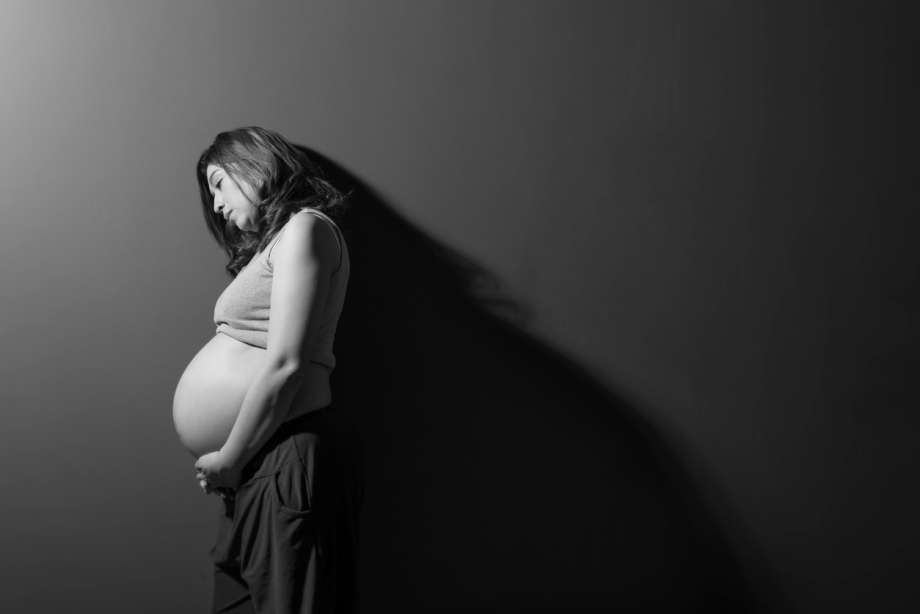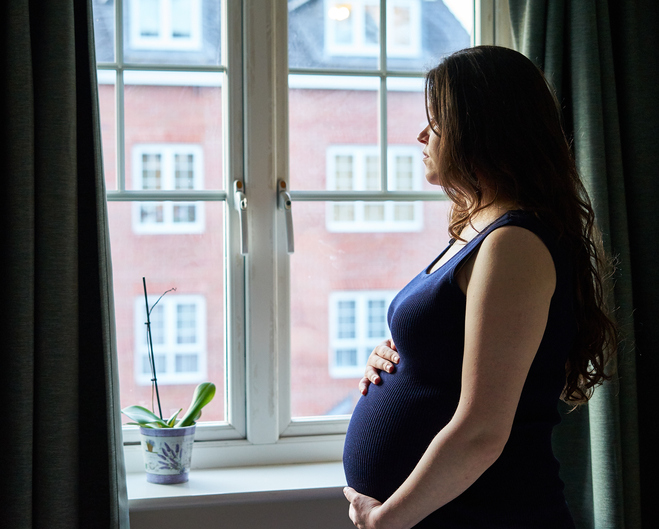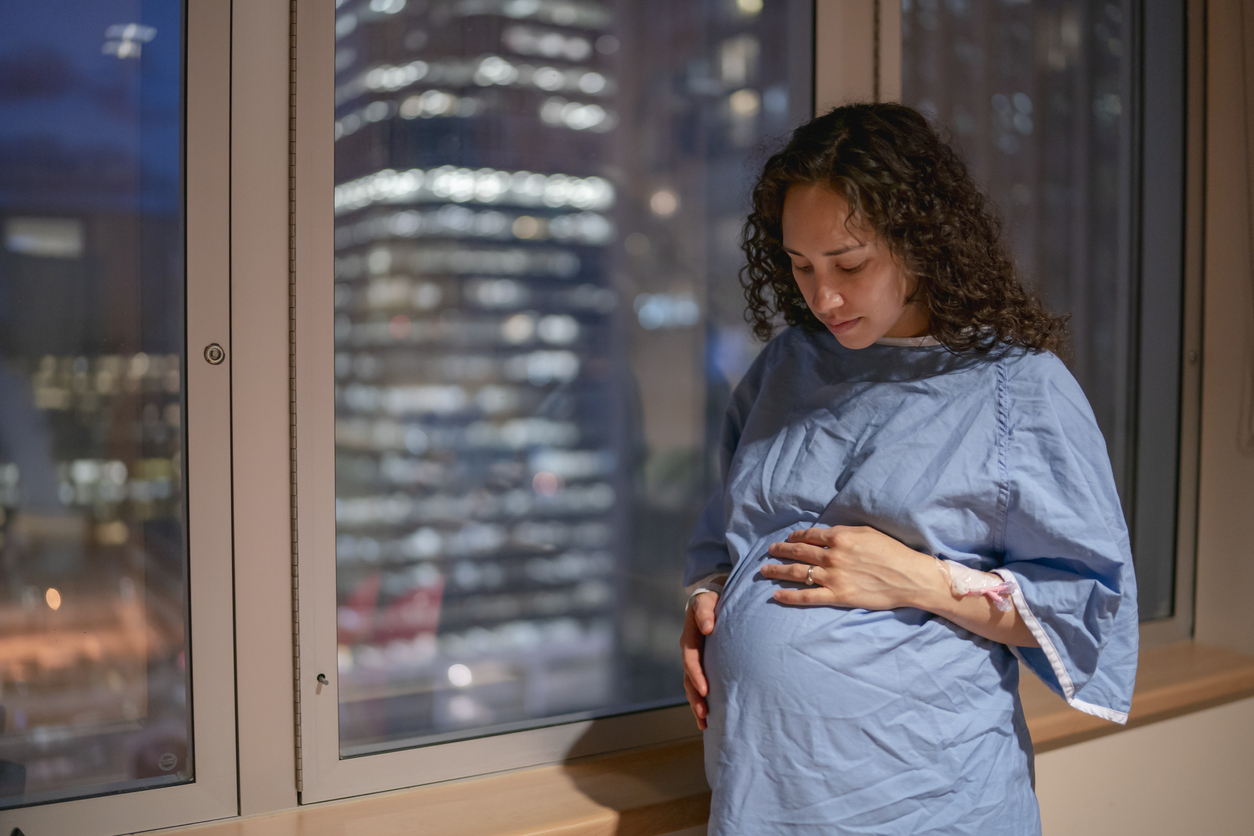3 Emotional Signs of Labor You Should Pay Attention To

No matter if it’s early or late in your pregnancy, it can be hard to know the exact time your baby is ready to come out. But if you’ve been getting some strange feelings that your baby is coming soon, your suspicions could be correct!
Intuition or emotional signs that labor is approaching are backed up by pregnancy experts.
The majority of pregnant women are aware of the physical symptoms that may indicate labor is near such as lightening (when your baby “drops'' into the pelvis) contractions that come at regular intervals and do not stop and when you feel your water breaking. However, most are unaware of the emotional signs of labor.
The difference between being emotional because of labor and labor causing an emotional response can be confusing for many expectant mothers and hard to navigate.
You know your own body and emotions best – if your emotions are feeling particularly out of whack, pay attention to them.
Does Being Emotional Mean Labor is Near?

During the third trimester, the discomforts of pregnancy can increase – and so can your excitement levels for your new baby to arrive! It’s not unusual for emotions to run especially high during this time. Interestingly, there are some specific emotional signs and symptoms that can indicate that labor is approaching.
According to Stanford Medicine, a pregnant woman’s body goes through hormonal changes two to four weeks before actual labor begins. These hormones prepare the uterus and cervix for labor and get the body ready for producing breast milk.
This shift in hormones can cause pregnant women to become more emotional. However, increased emotions does not guarantee that labor is near. Physical signs of labor approaching are stronger indicators that you may be days or even hours away from holding your precious child.
How Do You Feel a Few Days Before Labor?
Pregnant women feel a range of different physical and emotional symptoms a few days before labor. Some women do not experience any symptoms, but the majority do. As you get closer to your due date, your body prepares for birth.
You may experience physical symptoms like changes in vaginal discharge, lower back pain. These often come along with emotional symptoms and “motherly” behaviors like a surge in your nesting instincts that push you into overdrive preparing for your baby to arrive.
It is normal to feel uneasy and extremely sensitive. The shift of hormones and the fear of childbirth is what often causes this emotional state.
The 3 Emotional Signs of Labor

There are three main emotional signs that can occur before labor begins. They include nesting, mood swings and feelings of extreme anxiety and worry. Let’s break them down.
1. Nesting Instinct
It is normal for you to feel sleepy and fatigued during the third trimester of pregnancy. The baby will be “high” in terms of its position and this can make it more difficult to breathe easily. For some women, the baby can cause unbearable pressure on their pelvic area. However, if you suddenly feel energetic and have the urge to do housework, your body may be telling you that labor is near.
The nesting instinct is one of the primary emotional indicators that labor is about to start. Most pregnant women experience the nesting instinct with an impulse to tidy everything in preparation for the new baby. Some specific signs of the nesting instinct include waking up with a lot of energy and an intense desire to make sure that everything is in order, such as cleaning the house and buying items for the baby.
Interestingly, the tendency to organize and clean the house that pregnant women have in the final weeks of pregnancy may have a psychological basis. When a new child is expected, humans and some animals develop the desire to take charge of everything. People typically fulfill this biological drive by making their living spaces and environment cleaner and more child-friendly.
Nesting instincts can also be caused by anxiety before the arrival of the baby. It is normal for women to become very anxious right before delivery. Some people react to anxiety by engaging in repetitive behaviors like cleaning and washing things, which can be seen as nesting during pregnancy.
2. Mood Swings

One of the first signs of labor approaching is mood swings. If you have been very moody and are having emotional breakdowns frequently, labor may be near. Mood swings are usually caused by changes in hormones.
In the same way that some women experience intense heightening of emotions before menstruation, similar hormone shifts right before labor may also cause similar mood swings. You may experience moments when you are very happy and excited or sudden days when you feel depressed and do not understand why.
3. Extreme Anxiety and Worry
You may feel increased anxiety as you get closer to your baby’s due date. You may be especially overwhelmed and worried if you are having your first baby. This extreme anxiety will cause pregnant women to become quieter or more talkative right before labor. It ultimately depends on their personalities and how they respond to anxiety.
About 15 to 22 percent of pregnant women have heightened anxiety about labor. This uncertainty and the shift in hormones cause extreme anxiety and worry. Fortunately, there are strategies and approaches you can adopt to overcome the anxiety that accompanies pregnancy, labor and birth.
What Should I Do If I Experience Emotional Early Signs of Labor?

It is totally normal to feel the emotional signs before labor starts. However, anxiety and stress levels should be within normal levels. If anxiety and stress become severe during pregnancy, a pregnant woman is at risk of dystocia: a condition in which labor progresses slowly.
A pregnant woman should avoid chronic stress and anxiety by making sure that she:
- Relaxes and rests when fatigued.
- Stays around family and friends.
- Keeps her mind busy, for example by thinking about baby names or by making sure she has everything she needs in her hospital bag.
- Reads positive birth stories.
- Has everything planned before going into labor.
- Knows the signs to look for that indicate she needs to go to the hospital
Knowing when you should go to the hospital during labor is very important. If you are experiencing emotional signs of labor, you should not go to the hospital right away. These signs may indicate labor is near but do not indicate that you are in the “active” phase of labor yet.
According to the UK NHS, you should call your healthcare provider or go to the emergency room if:
- You have regular contractions that occur every 5 minutes or less and last for one minute.
- You have contractions that occur before 37 weeks of pregnancy.
- You feel a gush of water (amniotic fluid).
- You have vaginal bleeding.
- Your baby is moving less than usual.
Your body undergoes many changes that help initiate labor. The shift in pregnancy hormones causes physical and emotional signs that can tell you whether or not you are closer to giving birth to your child.
Being aware of these signs and symptoms and being aware of your body and any physical and emotional changes that occur will help you to be as prepared as possible for labor and birth.

